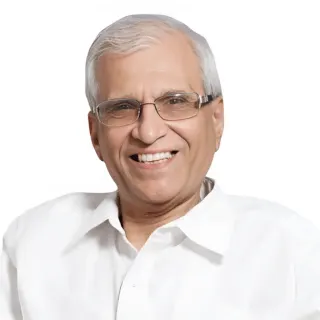Best Cosmetic & Plastic Surgeons in Indraprastha Apollo Hospital Delhi
 29 January,2026
Read More
29 January,2026
Read More
Enquire now in case of any assistance needed
 05 May,2025
05 May,2025

Surgery makes your lives better in the long run. But what about the short-term traumas you face before visiting those daunting operation rooms? Well, the experience is not easy for every individual. While some confront it with courage, others find it overwhelming. And do not worry! Whatever your response may be, it is part of being human. There are actions you can take to make it easier for yourself.
The first thing is to accept the fact that surgery is not just a physical event but also tests your emotional well-being. Even if the procedure is routine, it can involve millions of painful scenarios. On top of that, not all stress vanishes once your operation is over. Also, how you feel before undergoing the surgery impacts how you feel after.
In this blog, we will discuss how you should mentally prepare yourself to undergo a major surgery.
Fill up the form and get assured assitance within 24 hrs!
Yes, there is. Many of us often set our minds apart from our bodies. However, they are both deeply connected.
Imagine going for surgery in an anxious state. Your body’s stress is immense in this condition. It can even impact your heart rate, sleep, breath, and even how you perceive your surgical pain.
Even when your surgery is planned and successful, you may feel vulnerable and out of control. Ignoring your emotional feelings can even delay your recovery phase. The better your recovery, the better your life after surgery.
This is why you should prepare yourself mentally before undergoing surgery. When you train your mind to understand what is coming your way, you are less likely to overwhelm yourself. Moreover, it will equip you better to handle your setbacks, discomforts, and lifestyle changes.
High stress levels before surgery could trigger your body’s stress response. In this condition, your body releases hormones such as cortisol to suppress your immune function. This suppression delays your wound healing, making you more susceptible to infections.
Increasing stress and fear can add to the perception of your pain and decrease your tolerance. Psychological preparedness can alter your approach toward painful situations. Educating yourself about postoperative discomfort and coping mechanisms can help you mitigate the emotional toll of postoperative painful situations.
Psychological interventions to manage stress and anxiety have been quite effective in stabilizing heart rate and blood pressure during surgery. They contribute to smoother intraoperative experiences and may also reduce infections and complications.
The line graph above clearly demonstrates the inverse relationship between cortisol levels and wound healing rate and the direct relationship between cortisol and infection risk.
This data-backed insight reinforces the importance of mental preparedness before surgery. Effectively managing stress not only eases your mind but can also accelerate healing, minimize complications, and improve overall outcomes.
Psychological or mental preparation is not about pretending that you are fine. It is not about being too optimistic, either. It is about reducing stress over stuff you don’t even know. Building your emotional resilience and giving space to your brain to rewire and feel safe around your experience is what you should do. Here’s what being mentally prepared looks like:
When your mind is free, your stress is low. A clean and calm mind makes it easier for you to cope with the post-surgery trauma. You can set up your recovery space by:
Pre-surgery emotional techniques are insufficient if you do not handle yourself well during your operation. It is also essential to stay calm and composed on your surgery day. You can plan for it and keep a checklist of what you should take while visiting a hospital.
You can pick up a book or a magazine, or listen to your favorite playlist. You can do a crossword, solve a jigsaw puzzle, or talk to your kids. Mindful coloring, too, works wonders.
Preparing psychologically for surgery and ensuring proper post-operative care are crucial components of holistic health management. Attending to both emotional and physical health can lead to better surgical outcomes.
Furthermore, strong emotional intelligence can reduce recovery time and increase satisfaction with the surgical experience. Ongoing research continues to explore innovative, cost-effective strategies that address the evolving needs of diverse patient populations, offering hope for even more integrated and patient-centered care in the future.
Fill up the form and get assured assitance within 24 hrs!
B.Sc in Media Science from NSHM Knowledge Campus, Kolkata, 2019-2022
Suryani Dutta is an experienced content writer, specializing in healthcare and medical tourism. With a B.Sc. in Media Science from NSHM Knowledge Campus, Kolkata, she creates engaging, accurate, and SEO-friendly content that empowers patients to make info
A renowned Neuro-spine Surgeon, Dr. S K Rajan, has successfully performed over 3000 surgeries, including intricate spine cases. With over 25 years of experience, his expertise lies in minimally invasive (keyhole) spine surgery, Craniovertebral junction (...
Senior Consultant
Medical Oncologist
Nanavati Super Specialty Hospital, Mumbai
WhatsApp UsSenior Director
Gynecologist and Obstetrician, IVF Specialist
Max Super Speciality Hospital, Shalimar Bagh, New Delhi
WhatsApp UsSenior Director
Gynecologist and Obstetrician, IVF Specialist
Max Smart Super Speciality Hospital, Saket, New Delhi
WhatsApp UsSenior Director
Gynecologist and Obstetrician
Max Smart Super Speciality Hospital, Saket, New Delhi
WhatsApp UsSenior Director
Gynecologist and Obstetrician
Max Smart Super Speciality Hospital, Saket, New Delhi
WhatsApp UsSenior Director
Gynecologist and Obstetrician
Max Smart Super Speciality Hospital, Saket, New Delhi
WhatsApp UsThe Art of Effective Communication
 27 January,2026
Read More
27 January,2026
Read More
 20 January,2026
Read More
20 January,2026
Read More
 16 January,2026
Read More
16 January,2026
Read More
 13 January,2026
Read More
13 January,2026
Read More
 09 January,2026
Read More
09 January,2026
Read More
Trusted by Patients
"I am Asim from Bangladesh and was looking for treatment in India for neuro. I visited many websites to get the complete information regarding the treatment but I was not satisfied as I was getting confused. In the meanwhile, one of my friends suggested I seek help from Medi Journey as he experienced his medical journey very smoothly and was satisfied with it. They have filtered the top 10 doctors as per experience, the success rate of surgery & profile, so it helps us to choose the best treatment in India. "
"For my knee surgery, Medi Journey guided me to BLK Hospital where I received exceptional care. The team's support and the expertise at BLK Hospital exceeded my expectations. Thank you Medi Journey for making my medical journey stress-free. "
"I came from Iraq for my granddaughter's eye surgery in India facilitated by Medi Journey, due to critical cases they advised us to get a second opinion from the different hospitals before going to surgery. Finally, we went to Fortis Escort Hospital, which helped us to get more confidence for diagnosis. Fortis Escort Hospital has the best eye surgeon team with the latest instruments. Thanks to all team members for providing a high-quality treatment in India at an affordable cost. "
"I came for my hair transplant in India, before coming I was so confused about choosing the best clinic and surgeon for me. But thanks to God one of my friends had a hair transplant in India through Medi Journey. He recommended me to go with them. I am completely happy with my experience with them. They were always very fast in their responses to me. the success rate of my hair transplant surgery is 100%."
"Artemis Hospital, suggested by Medi Journey, turned out to be a great choice for my treatment. The personalized assistance and medical care were exceptional. I'm grateful to Medi Journey for guiding me to a hospital that perfectly matched my needs. Highly recommended! "
"I came from Afghanistan for my treatment in India at Jaypee Hospital, Noida. I had a fantastic experience with Medi Journey. Kudos to them for their incredible support during my medical journey. They not only took care of all the logistics but also connected me with a fantastic healthcare team. Efficient, caring, and highly recommended for a hassle-free medical tourism experience."
"I am Adam from Kano, Nigeria, one of my friends from Nigeria was facilitated by Medi Journey, and he recommended us to go with them. I sent my all reports to them and within 48 hours they reverted with 4 options from different hospitals. They helped me to get a Visa letter from the hospital, arrange pick-up from the airport, and book a hotel for me. Their team is very honest and throughout our stay in India they are with us they are caring for us like his family members. BLK Hospital is the best hospital in India with a top surgical oncologist surgeon team, a very advanced OT, and a Radiotherapy department. I wish more success to Medi Journey. "
"Great experience at the Max Hospital for my spine surgery and was successfully done. I thank my neurosurgeon and his entire team. I recommended all of my country's people to Medi Journey for treatment in India, they choose the best hospital, the best doctors, and the best cost for patients."
"I came to India from Dhaka, Bangladesh for my father-in-law's cardiac surgery at Fortis Hospital. I was confused about choosing the best surgeon for him before coming, but their team helped me to choose the best hospital and best cardiac surgeon in India with very good cost and 100% success rate of surgery. I am very happy with the services, really they make my journey so comfortable that make me feel at home. Thanks again and I like people to choose "Medi Journey" as your travel guide. "
"I am Mohammad from Bangladesh came to India for my general health checkup. Medi Journey offers me the complete package including Pick-up from the airport, hotel services, and 24-hour assistance. They guide you to choose the best hospital in India, the best cost of treatment with top-most doctors and give you complete information about hotel booking, and pick-up from the airport before coming to India They have the best team to help. Always choose Medi Journey for your treatment in India."





